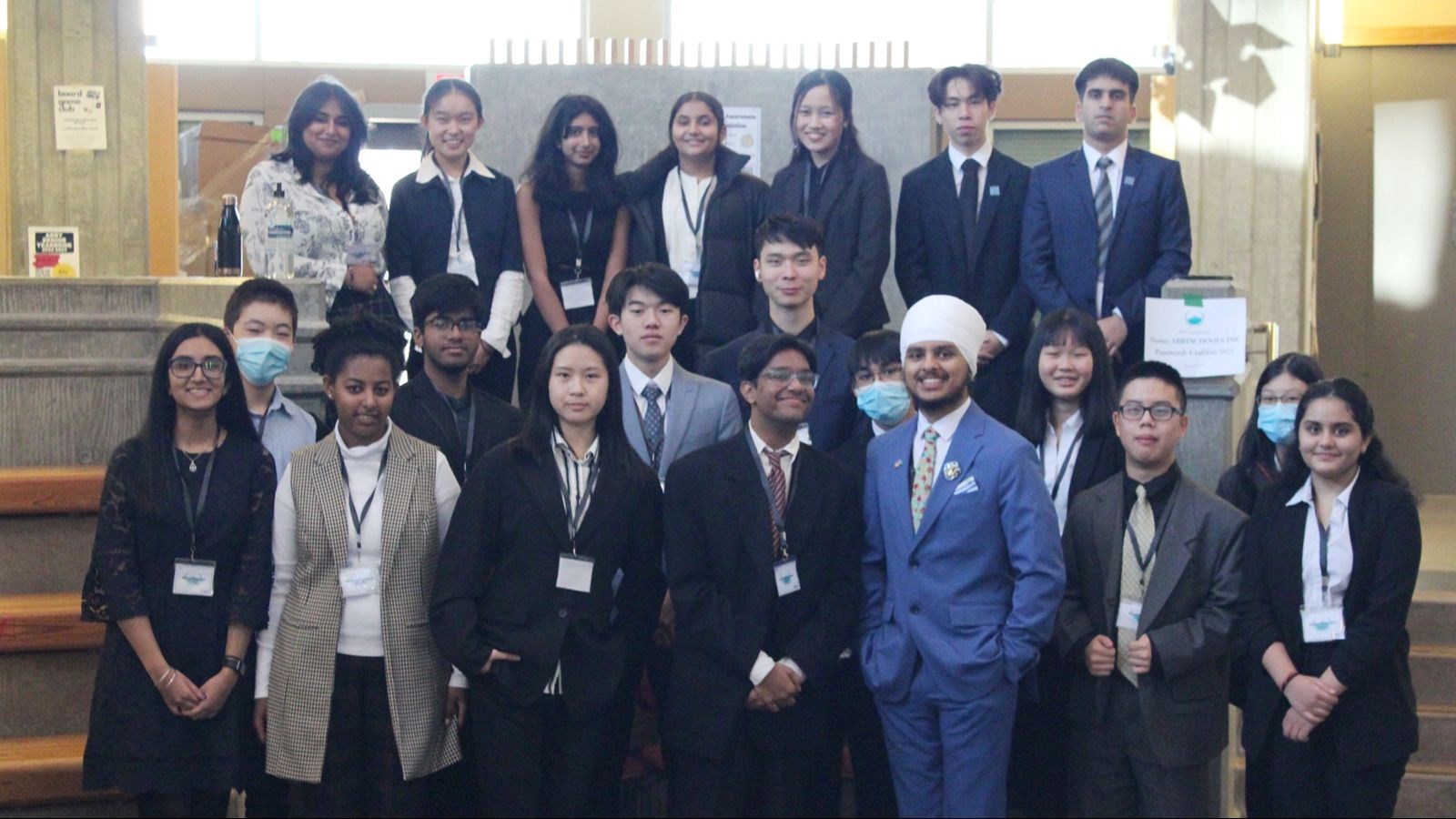International Baccalaureate students hosting Model UN at Johnston Heights Secondary
 The Johnston Heights Secondary Model UN club is hosting its first large-scale Model UN this Saturday. Students from across the district will represent different countries and discuss major current and historical world events, furthering their understanding of global politics.
The Johnston Heights Secondary Model UN club is hosting its first large-scale Model UN this Saturday. Students from across the district will represent different countries and discuss major current and historical world events, furthering their understanding of global politics.
The Model United Nations club at Johnston Heights Secondary is hosting its first large-scale Model UN on Saturday, Feb. 11, with more than 100 students from Surrey and White Rock secondary schools attending to discuss and debate global affairs.
Formed last year by a group of the school’s International Baccalaureate diploma program students, the club is largely led by Grade 11s and 12s but has proven effective in recruiting students from younger grades who want to pursue the diploma program. The club meets every Thursday to inform students on world issues and the purpose of Model UNs.
“The students I’m teaching are quite politically aware and they wanted to form their own Model UN club at the school,” said global politics teacher Mat Giacomello, who happens to be a graduate of Johnston Heights.
“They had this idea of hosting their own and they’re incredibly eager and excited to do it – it took on a life of its own.”
Representing different countries, students will discuss both current and historical world events in front of four committees modelled after groups from the UN:
- Historical Crisis Committee: analyzing and discussing the Berlin Crisis of 1961;
- Social Humanitarian & Cultural Committee: discussing the Uyghur Muslim disenfranchisement and oppression in China;
- United Nations Office on Drugs & Crime: discussing organ trafficking over international borders;
- United Nations Development Program: discussing the Israeli-Palestinian conflict, focusing on development of the nations.
“It’s quite a spectrum, and the students will get to discuss where their country lines up on those particular issues,” said Giacomello.
In addition to becoming more politically aware, Giacomello said the Model UN is a great opportunity for students to practise public speaking and develop other skills that are not often showcased in other areas of study.
“It helps them learn to speak in front of a crowd and it’s excellent practice to know that it’s okay to talk in front of strangers, even if you make mistakes,” he said. “Those skills are some of the most transferrable skills out of secondary school, just learning to speak to people.”
Giacomello said he’s looking forward to seeing his students discuss politics with other students from across the district and share their knowledge on a new platform.
“It’s great to see students become more involved in their understanding of politics,” he said. “Maybe it’s just because of the world and how kids are so connected now, it seems like younger generations are so much more connected to politics and global issues and international mindedness. It’s really encouraging for the future, as a teacher.”

